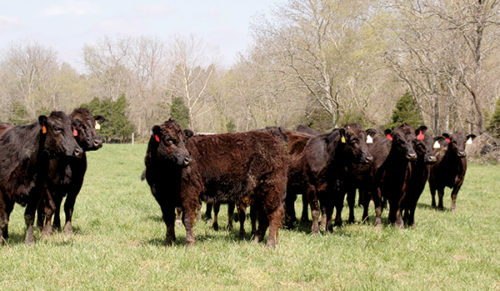Preventing Early Embryonic Losses

by Erika Lundy and Chris Clark
IBC Extension Specialists
Transportation stress is often associated with pregnancy loss during the first several weeks following breeding. Research from South Dakota State University suggests that shipping cows between 5 and 42 days post artificial insemination (AI) can cause up to a 10% loss in pregnancy.
Forty-five to 60 days post-AI is another critical time during the pregnancy and transportation stress during this period can result in up to a 6% pregnancy loss. If transportation is necessary, it is best to haul cattle within four days post breeding or wait until after 45 to 60 days post breeding.
Shipping cattle immediately after AI (days 1-4) is best as the embryo is still in the oviduct and is less susceptible to stress and associated uterine changes. The embryo migrates to the uterus on days 5-6 post breeding, and from days 5 to 42 of pregnancy, numerous critical developments take place including blastocyst formation, maternal recognition of pregnancy and placentation. The developing embryo is very susceptible to stress during this time. By day 42, the embryo should be fully attached to the uterus and supported by the mother, making it less susceptible to stress.
Although the developing embryo is most susceptible to transportation stress between days 5 and 42, embryonic loss has been reported up to 60 days after breeding. If transportation is necessary, strive to haul recently bred females between days 1-4 or after day 60 of pregnancy.
Sometimes producers need to transport pregnant cows during critical periods of embryo development. When hauling these susceptible pregnancies, care should be taken to minimize cow stress by using low-stress cattle handling skills and avoiding overcrowding on trailers.
In addition to shipping stress, other factors can affect pregnancy including heat stress, sudden changes in diets and exposure to toxic plants. Strive to mitigate heat stress and strive to offer a consistent, well-balanced diet during breeding season and early gestation.



